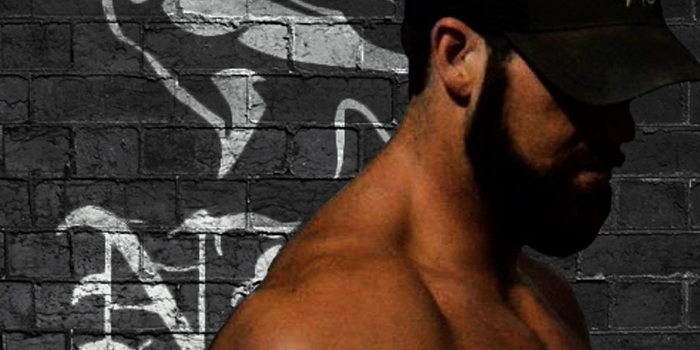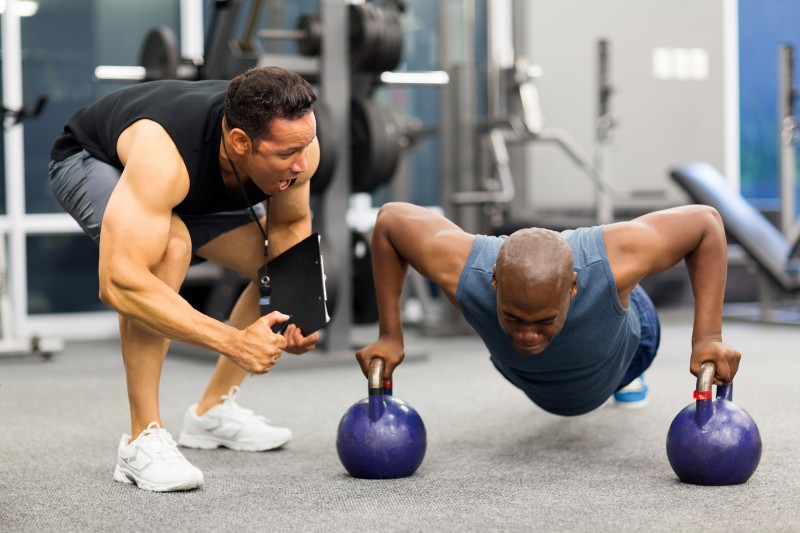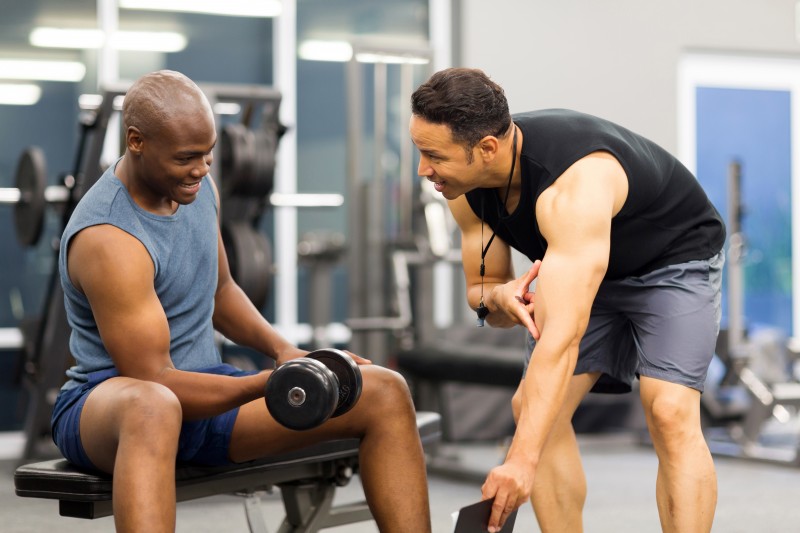
I’m currently in my second decade of working in the fitness industry, coming up on my third decade of lifting, and starting my fifth year of internships at my facility. All this has me wondering how I am impacting the fitness industry. I recently started to wonder, if I had a magic wand and could instantly change things, what would I change? I answer that question in this article. Here are the three things I would change about the fitness industry.
Require a Doctorate of Personal Training
Personal training is one of the few health professions that does not have any requirements for employment. Schooling and a state license are required to cut someone’s hair for a living. Dental hygienists are required to have a degree in dental hygiene to clean a patient’s teeth. Physical therapists are required to have a four-year degree and a doctorate in physical therapy. Personal training requires nothing. The lack of prerequisites in personal training has allowed unqualified people to dilute the quality of the profession, which has had a negative impact on respect for the profession. If every other healthcare profession has educational requirements, so should trainers. I vote that it should be a doctorate.
RECENT: Advice High School Lifters Will Ignore (But Shouldn't)
What is the difference between a personal trainer and a physical therapist? Both use exercise and different types of tissue manipulation to create changes to a person’s body. A physical therapist is typically trying to do so to rehabilitate an injury of some sort, while a personal trainer is typically trying to make improvements to a client’s health, physique, and performance — but both professions expand their scope a bit to achieve all goals. A physical therapist is going to focus heavily on physiological changes, whereas a trainer may or may not have to focus more on psychological changes — but both professions require a high degree of competence in both physiology and psychology. A physical therapist may be with a patient for a shorter period of time as they rehab them through an injury, while a personal trainer may be with a client for years — but both professions will work with clients for varying lengths of times. My point is that there are far more similarities between the professions than there are differences, yet physical therapists require a doctorate degree and personal trainers require nothing.
When someone tells me they want to be a trainer or a coach and I ask them why, they typically tell me, "Because I’m passionate about helping people.” Brain surgeons are passionate about helping people as well. So are billionaire philanthropists. Why not become a brain surgeon or create a giant tech company worth billions so you can build wells in Africa? I’m not trying to discourage someone from becoming a trainer, but I think it’s important to know that even though being passionate about helping people is great motivation, it’s not worth shit as a qualification. That passion should drive you to seek an education that will allow you to truly help people.
Every other health profession has a clear path to education. Passionate about helping people recover from injuries? Get a four-year degree, get into physical therapy school, study, do your hours in different clinics, get your doctorate, find a job, and help people recover from injuries. Instead of a clear path, personal trainers have no path, and in turn, there are people taking money to train people who don’t know basic physiology like what a motor unit is, how a muscle actually contracts, and that there are three different types of contractions. I don’t believe there are any people needing hip surgery who have a friend saying, “Don’t waste your money on paying a doctor! I can cut you open and replace your femoral head better than they can.” Yet that happens every single day in the health and fitness industry. If the industry actually wants to make an impact on people’s lives, reduce diabetes, reduce obesity, and turn this health-doomed country of ours around, then start holding trainers to a higher standard. A much higher one.
Get Rid of Social Media
Social media has become a double-edged sword for society. On one side it has allowed us to transfer information quicker than ever before, yet the reliability and accuracy of that information has become more and more questionable. On one side it has allowed us to connect with thousands of people at a time all over the world, but those connections are shallow and lack the depth of true connection. The fitness industry has leveraged social media to allow people to make a living like never before, but the message we put out is often not a healthy one. Navigating this complicated relationship has been a struggle of mine for a while now. I view the topic from the stance of both a lifter and a business owner. I have to weigh out what is best for my business, what is best for my customers, and what is best for my family. Taking all that into consideration, if I had the opportunity, I would still get rid of social media.
Training is meant to be a personal and communal pursuit of improvement, but social media has turned it into a performance. The personal development that comes with physical strain is priceless in the physical and psychological development of a person, but it is lost when the focus of that pursuit is placed on finding the ideal lighting and camera angle to record it. In my mind, there is no greater crime on the planet than recording a concert on your cell phone. It sounds like crap, you can’t see what is going on, you’ll pretty much never watch it again, and it is a waste of the concert experience. Experiencing a concert through a phone screen pails in comparison to the experience you get by keeping your phone in your pocket and taking in the experience completely through your own senses. But people do it for the simple reason that they want to share that experience through social media. They are willing to sacrifice part of the experience of a concert for the dopamine trip they know they will get when all their friends like their shitty concert video on Instagram. This same scenario occurs daily in the gym as people from across the globe haul in a bag full of camera equipment ready to sacrifice the personal experience of a training session for the pursuit of social media attention.
Is recording your lifts to get some technique critique fine? Sure. Is it understandable that people would want to share their PRs with their online community? Of course. Is there some benefit to the accountability of sharing progress pictures online? Yes. But we have made this social experiment the focus of fitness, and what saddens me the most is that this is the message we are sending to people outside the fitness community: "If you want to be fit, you have to post all your workouts, take pictures of all your meals, and post update pictures of yourself in the mirror at least once a week.” For what? Validation from your online peers? That is not the message we need to be sending to beginners. Don’t do this shit for likes. Do it because it makes you a better person.

This is another reason for getting rid of social media. It’s a fictitious highlight real. It’s fake. We use it to paint an artificial picture of our lives. It keeps us from addressing our own insecurities, our ineptitudes, and our moral shortcomings, and instead allows us to pursue our own narcissism and develop deeper levels of denial. Someone can post all kinds of motivational bullshit, share all their lifting videos, gain tons of followers, all the while cheating on their spouse, ignoring their children, and treating others terribly — yet they will have thousands of adoring fans cheering them on and encouraging the performance to continue. They can paint a bogus picture of how good or how awesome or how smart they are and allow their online followers to help ingrain that self-obsessed belief even deeper.
The truth is, happy people don’t sit in front of the mirror chanting motivational mantras to themselves to make them happy. They just are. Likewise, people who actually have their shit together, people who really aren’t worried about the opinions of others, people who really are worthwhile to follow and learn from, don’t spend their time and energy trying to convince the masses on social media of these things. They don’t post stupid memes of wolves and lions with a quote above it to help them solidify their sense of delusional superiority. They don’t say things like, "If this post offends you, just unfollow me.” People who are actually confident in themselves don’t need to win online arguments or have followers, likes, and comments.
They don’t care and neither should we. We shouldn’t spend time and energy trying to impress a bunch of people we don’t even know by putting on a fake performance for them. We should instead address our insecurities, our ineptitudes, and our moral shortcomings head on through serious self-reflection and communication amongst a very small group of very close relationships. We shouldn't be seeking shallow validation from thousands of strangers, and we shouldn’t be sending that message to people who are looking to us for guidance.
A Barbell, Plates, and a Pull-Up Bar for the First Three Years
One of the biggest mistakes I made as a beginner lifter was believing I should train like the pros. I think a lot of beginner lifters make this same mistake. The amount of knowledge and equipment available to most lifters nowadays is unlike anything available previously, which unfortunately muddies the waters of progress a bit. I believe people forget that great physiques and impressive lifts have been built for decades before us, by people who didn’t have nearly the amount of equipment and knowledge that we have.
Limiting everyone to just a barbell, plates, and a pull-up bar would accomplish two things. First, it would force people to really learn how to program and listen to their bodies. When you limit the variables that someone can adjust to, they are forced to learn how the other variables affect the outcome, and in turn they will gain a better understanding of how to manipulate them. Now people can use a different piece of equipment every day and do a different program every couple months. The result is that we have lifters with years of experience but no real level of knowledge of how to program. I believe limiting lifters to a barbell, plates, and a pull-up bar for their first three years would help them build a better foundation for learning.
The second thing it would accomplish is helping lifters gain perspective. I have written in that past about how lifters tend to chase “unicorns.” We want to believe that there is some secret formula for success — that if I just have this piece of equipment, if I just follow this program, or if I just do this secret set and rep scheme, I’ll see some dramatic jump in results. We tend to think this way, even more, when we have hit a plateau. Limiting the number of choices a lifter has will allow them to develop perspective. Instead of chasing unicorns they will learn that progress comes in small—sometimes erratic but overall consistent—amounts. This will allow them to focus on the important big picture items instead of getting bogged down by smaller items that distract them. Taking away that distraction early in a lifter's career will help them learn to better handle it later on.
I recognize the hypocrisy in writing this article. I don’t have a doctorate in exercise science, I am still addicted to the social media drug, and I definitely didn’t spend the first three years lifting with just a barbell, plates, and a pull-up bar. However, I am gaining perspective, and I can share that perspective with all of you through this article. And hopefully, if we can all grow a little bit, we can improve the future for those who are coming up behind us.
Image credit: HONGQI ZHANG © 123RF.com












Let Darwin weed out the weak.
Social media is a great tool. I agree that it paints a false picture, for the most part. I think if athletes and average Joe are going to share their gym workouts they should also be honest about their failures. Some do...many don't. I don't think it should be completely cut out.
I agree one hundred percent about plates, barbells and pull up bar. Learn the basics. Learn them well. Master as much as you can...then Branch out a bit here and there with specific equipment.
I
I had a personal trainer contact me earlier tonight to ask my advice on putting mass on an eleven year old. How is this in any way, acceptable!? But, mommy and daddy are paying him to put mass on their child. As long as money controls what we do, our education level will continue to be poor as we will only be here to serve the wants and wishes of those forking over the money. As long as the money is there, we will continue telling them what they want to hear, they will believe us, and we will collect their money. Sad.
I am so sick of bullshit Certs out there that mean nothing. First question asked for a job interview, ask me, hmm, where is your cert? Hmm, nope, I have a degree with a lot of experience. Nope, don't want you, you need a cert !. Everywhere I go, so many people training that don't have a clue. Exercise field has so many of arm chair know it alls in the business, its not even funny, might be worst then the medical field. They all have their little "cults" and only listen to themselves. No one else dare try to tell them they are doing something wrong.
There is an old saying of paying your dues my friend. You researched programs, human body, maybe gorilla's too? Sat in a library and read Russian physiology books on training, up late, did program after program, Listened to other experienced peeps in the field that paid their dues too. Dropped a dam plate on your foot, but taped it up, so you can continue your leg day, When they first got internet, they stayed on it to research training and was reading for hours upon end. Battled through injuries, writing everything down. Did not have the greatest genetics, but worked with God gave them.
I remember a guy in the gym, he was like almost 6 feet and he got to 240pds or so doing what he knew. He worked up to a bench 440 or so. Never did he ever beat that. No matter what he did, he could not. You think he would listen to anyone? One can only go so far with genetics, one needs to get educated. So much bad stuff, made me quit the field. Unbelievable.